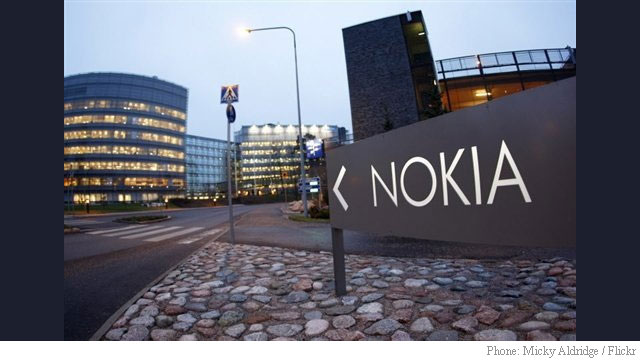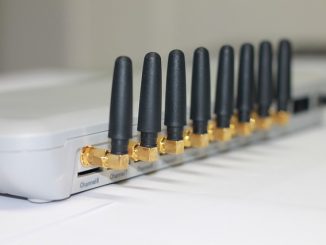After working with Technical University of Munich and Deutsche Telkom T-Labs on a special optical systems project, Nokia Corp (ADR) (NYSE:NOK) subsidiary “Bell Labs” on Friday released a press release stating that the joint research done by the three organizations to boost network speeds via the ‘Probabilistic Constellation Shaping’ [PCS] method has reached a new milestone.
According to the statement, Nokia has achieved 1 Terabit [TB] per second data transmission speeds over optical fiber in Germany. To put that in perspective, a rate of 1.125 TB per second allows the downloading of an entire ‘Games of Thrones‘ series in HD within one second. Finland’s Nokia is no longer a major player when it comes to mobile devices but the company after selling its once-dominant handset business to Microsoft Corp (NASDAQ:MSFT) has focused on becoming a strong telecom-network equipment supplier. Last year, it acquired Alcatel-Lucent so they automatically received Alcatel’s iconic Bell Labs (now called Nokia Bell Labs) and its hefty collection of patents.
Nokia researchers have proven that the PCS can offer better flexibility and operation. The newly discovered terabit speed optical fiber links can lead to an improvement in the speed of core internet networks for the coming years. The method can potentially enable telecommunication service providers and companies to boost the distance and capacity of high speed data transmission in optical metro and core networks.
According to Marcus Weldon, president of Nokia Bell Labs & Nokia CTO, “Future optical networks not only need to support orders of magnitude higher capacity, but also the ability to dynamically adapt to channel conditions and traffic demand. Probabilistic Constellation Shaping offers great benefits to service providers and enterprises by enabling optical networks to operate closer to the Shannon Limit to support massive datacenter interconnectivity and provide the flexibility and performance required for modern networking in the digital era.”
The terabit speed networks will be highly appreciated by enterprises and individuals who are looking for higher-capacity core networks. Currently, Alphabet’s (NASDAQ:GOOGL) Google Fiber offers the fastest internet speeds in the market. Home users have access to a 1Gbps embryonic fiber-to-the-premises connection service.
Researchers observed that PCS allowed optical networks to reach 1 Tbps. It is presently the closest to the Shannon Limit that was coined by Claude Shannon in 1945. This discovery would help Nokia meet the continuously increasing demands of customers and business data. The research is a result of the Safe and Secure European Routing (SASER) project. The experiments were made over a deployed optical fiber network of Deutsche Telekom.
Bruno Jacobfeuerborn, Director Technology Telekom Deutschland and CTO Deutsche Telekom, said, “To guarantee a high customer experience for future services we need optical transmissions with increased capacities, reach and flexibility over deployed fiber infrastructures. Deutsche Telekom provides a unique network infrastructure to evaluate and demonstrate such highly innovative transmission technologies for example. Furthermore, it also supports higher layer test scenarios and technologies.”
The findings of the collaborative research will be presented by Nokia Bell Labs at the European Conference on Optical Communication (ECOC) 2016 in Dusseldorf, Germany on September 19.
- Bulenox: Get 45% to 91% OFF ... Use Discount Code: UNO
- Risk Our Money Not Yours | Get 50% to 90% OFF ... Use Discount Code: MMBVBKSM
Disclaimer: This page contains affiliate links. If you choose to make a purchase after clicking a link, we may receive a commission at no additional cost to you. Thank you for your support!





Leave a Reply